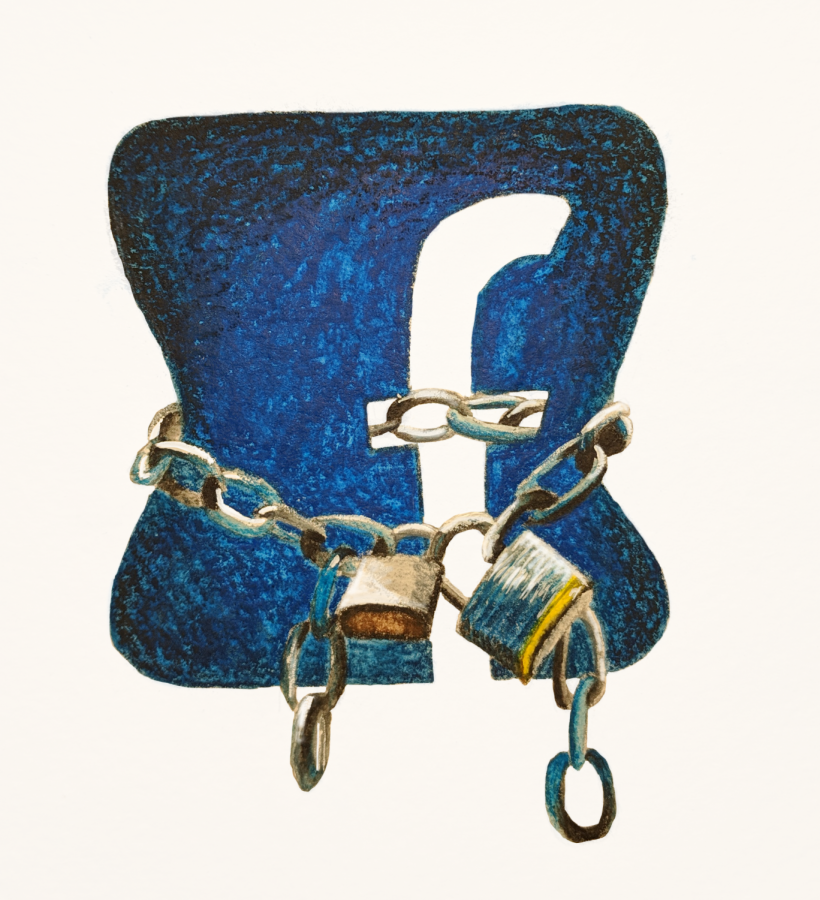Taming the Wild West of the Web
December 8, 2018
The Internet, some surmise, is the fourth dimension of space; though it may not exist as tangibly as the fabric on our backs does, it pulls at our heartstrings and weaves its way around our minds. In the Internet’s unexplored deserts and snarled jungles, data spread from one grubby hand to another in exchange for money, and corruption and exploitation of privacy are masked by the sands of negligence.
How is one to lay down laws in this vast territory? A bill of rights structured the U.S’s vast territory; similarly, the Internet requires regulation. Michelle Li ‘20 explains that “We want to feel a sense of security when we are online. If the Internet does have their own version of the bill of rights it can connect to the [Constitutional] amendments and their significance concerning the protection of privacy.” Although the Internet may be intangible, firm laws are necessary to keep order.
Facebook whipped up a sandstorm of anger and debate last month when it announced the compromised data of over fifty million users [1]. To compound these casualties, Facebook noted that those who used Facebook to log into third-party apps were at a great risk as well.
Many see the Internet as a source of entertainment, but what they fail to realize is its profound impact on our livelihood as well. Rohit Chopra, an FTC (Federal Trade Commission) official, pleads, “Breaches… create enormous risks for our… national security… The cost of inaction is growing, and we need answers” [2]. Disinformation and false rumors boil resentment in the unaware consumer’s mind towards minorities and controversial opinions, disabling people from finding facts. In Myanmar, such misinformation campaigns have intensified violence against the Rohingya people, a minority Muslim group.
California, ever the innovator, passed a law in June that radically changed the balance of power between consumers and online companies [3]. For example, consumers can order companies to delete data stored on the latter’s servers, and the state government can fine companies who refuse to comply. California follows in the footsteps of Europe, who in May created the General Data Protection Regulation to prevent tracking of consumers’ browsing habits and data as well [4].
In the wake of so many social network breaches, it is important to remember that the responsibilities for privacy protection lie primarily with the user; what the user cannot control, the company then steps in to manage.
Sri Guttikonda ‘20 explains how “those with social media accounts should take steps to protect themselves. Major social networks should work to protect privacy, but without the cooperation of the user, priorities become muddled.” Despite this, the best defense should be regulation by outside parties. The free rein over the social networks fails to correctly moderate the Internet. Just as in “real life,” the Internet requires a bill of rights in order to maintain order.
However, one must remember that the Internet is not an amalgam of breaches and scandals; it also exists as treasure troves of information and oases of entertainment. Just as we have ratings for TV shows and movies and publication regulations for novels, we must consider the importance of security on the Internet as well. Creating a cohesive, universal Bill of Rights for the Internet will reinforce to the four billion virtual cowboys riding infinite sand dunes of websites that sometimes, it’s okay to have a map.
[2]–https://www.nytimes.com/2018/09/28/technology/facebook-hack-data-breach.html
[3]–https://www.nytimes.com/2018/06/28/technology/california-online-privacy-law.html

